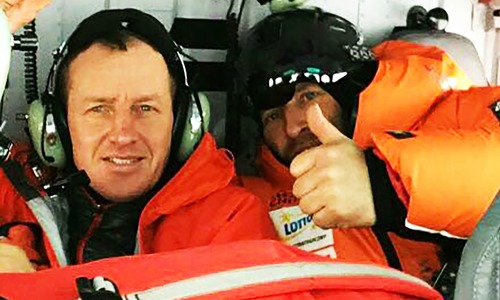OVER the weekend, we all witnessed one of the most dramatic mountain rescues of all times when a two-member climbing team on Nanga Parbat, one of the most dangerous peaks for mountaineers, ran into serious difficulties at an altitude above 7,000m and called for help.
The rescue effort required flying in a team of four highly capable climbers from an expedition on K2, some 180km away, to a drop-off point at 4,900m on the slopes of Nanga Parbat. Two members from that team then managed to climb a one-kilometre-high wall of ice in record time at night and in the depth of winter to safely evacuate one of the climbers in distress. Sadly, the other climber, whose condition was stated to be critical and who was lying in a tent more than 1000m above where the rescue took place, had to be left behind due to deteriorating weather conditions.
The heroic mission carried out by the Polish and Russian climbers in the rescue team is an inspiring example of the feats of superhuman endurance that mountaineers are capable of, as well as the exceptional technical skill that was required to make it happen.
It is unfortunate, however, that a controversy erupted over the effort when people learned that the aviation wing of the Pakistan Army demanded payment guarantee for the use of the helicopters before undertaking the flights that were necessary to transport the rescue team.
In fact, upfront guarantees for such flights are always a precondition for helicopter evacuation for mountaineers, even in Nepal, the other country that has peaks as formidable as Pakistan’s. Expeditions are told this before their permits are issued and are made to sign an undertaking agreeing to this condition. They have the option to leave a refundable deposit with the authorities, but even then there could be additional charges if the logistics of the rescue demand more flights.
Given the altitudes they work at, and the kind of risks that mountaineers take — from potentially falling into a crevasse to facing avalanches, to experiencing altitude sickness, equipment failure or inclement weather — no authority can guarantee their safety and free evacuation.
The mountaineering community knows this better than those raising the controversy, and does not complain in situations like this. The controversy should not cloud the triumph of the will over the unimaginable adversity that we all just witnessed.
Published in Dawn, January 30th, 2018














































